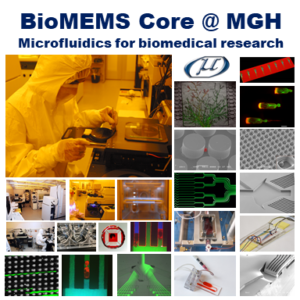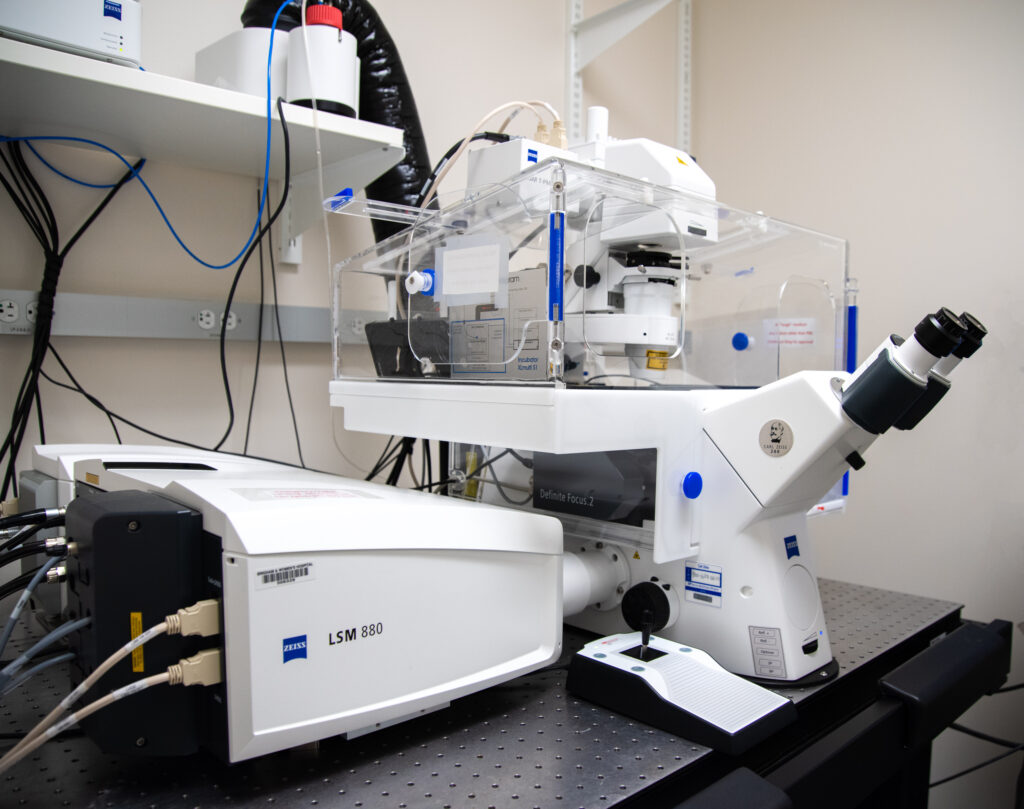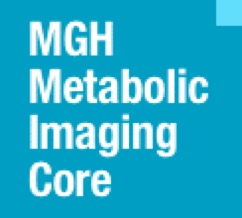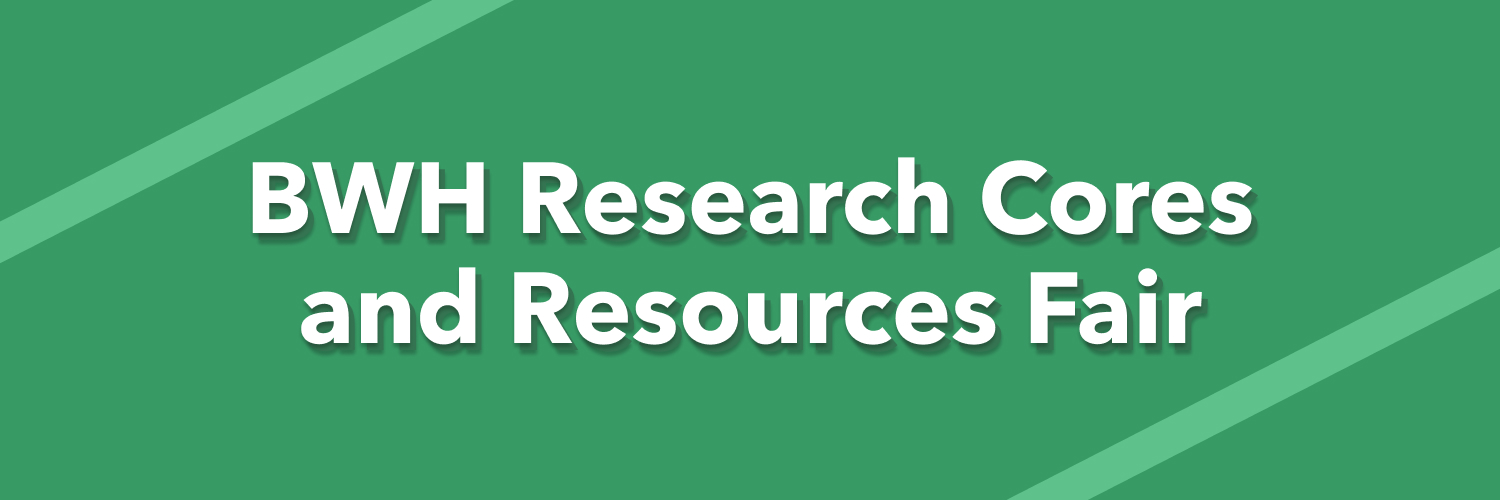
ABOUT THE EVENT
The Brigham Research Institute is sponsoring a virtual Cores and Resources Fair which will feature research core facilities/resources, and provide an opportunity for the BWH research community to learn more about resources available to them as well as for cores to connect with researchers. This event is open to the entire BWH community – all researchers and research support staff who are interested in learning more about the prolific BWH and MGB core facilities are encouraged to attend.
The event is also open to all MGB affiliated employees.
AGENDA
Introduction: 5 mins
Jackie Slavik, PhD, MMSc, Executive Director, Brigham Research Institute
Overview: 35 mins
25 cores and resources, 1 min each for overview
Virtual Tabling: 18 mins
After the overviews, each core and resource will have a dedicated breakout room, and attendees will be able to move in and out of the breakout rooms based on which core or resource they interested in learning more about.
If you have any questions please contact Sara Yohannes at syohannes1@bwh.harvard.edu.
Biomedical Imaging Research Core (BICOR)
PRESENTERS
Peter Holton, BS, Shipra Dubey, PhD, Bo Yeun Yang, PhD
Contact
Peter Holton,
pholton1@bwh.harvard.edu
WEBSITE
The purpose of BICOR is to fulfill the need for radiotracers for research staff and clinicians. The facility includes a medical cyclotron, radiotracer processing facilities which meet the requirements of current good manufacturing practices (cGMP), a radiopharmacy, a micro PET/CT lab, and various support laboratories. BICOR is committed to increasing the list of available compounds in response to the changing needs of the community. Staff members are prepared to work with researchers to identify literature compounds as well as to support effort to bring novel compounds through chemistry development, pre-clinical productions, and translation to first in human studies.
BioMEMS Core
PRESENTERS
Daniel Irimia, MD, PhD
Contact
Daniel Irimia, MD, PhD
dirimia@mgh.harvard.edu
617-724-6543
WEBSITE
The MGH BioMEMS Core (BMC) provides
- consulting to biomedical investigators interested in microfluidic tools,
- training in microfluidic-specific techniques
- access to microfabrication infrastructure to trained users
- microfabrication services for Bio-MEMS device users
Many challenging biomedical problems today cannot be approached with current technology toolbox. Microfluidics pushes these limits for applications in clinical medicine, life sciences, and technology. Specifically, BMC focuses on translational activities that advance biomedical research of Mass General-Brigham investigator and creating an environment attractive for industry partners interested in prototype testing and early scale-up efforts.
Bone Density and Body Composition Research Core
PRESENTERS
Cindy Yu, Kristin Ratliff
Contact
Cindy Yu
cyu@bwh.harvard.edu
617-732-5643
WEBSITE
The Brigham and Women’s Hospital’s (BWH) Bone Density and Body Composition Research Core is part of the Skeletal Health and Osteoporosis Center and Bone Density Unit at 221 Longwood Avenue. This research core uses dual energy x-ray absorptiometry (DXA) to provide high quality measures of bone mineral density (BMD, VFA and TBS) and body composition (fat, lean tissue, and visceral adiposity). Dr. Meryl S. LeBoff, the Director of this research core and Chief of the Calcium and Bone Section, and the staff have been performing clinical research scans for over 30 years and are committed to maintaining the highest standards of quality control to advance interdisciplinary health sciences research.
Brigham Digital Innovation Hub
PRESENTERS
Chen Cao, MPH
Contact
Chen Cao
ccao@bwh.harvard.edu
WEBSITE
@BWHiHub
Brigham Digital Innovation Hub (iHub) is the center for digital health and innovation across Brigham Health. We create, enable, and advance digital solutions through design, adoption, evaluation, and commercialization. Convening partners across our integrated health system and beyond, iHub promotes the use of and seeks to guide strategic hospital initiatives involving digital technologies to transform health and care delivery for all, including patients, providers, caregivers, researchers, and staff members.
Mission
We advance the digital transformation in health care through technology and innovation. We empower individuals to think boldly, unlocking new potentials, while making progress towards a healthier world for our patients, clinicians, employees—for all.
Brigham Research Assay Core
PRESENTERS
Steven Whitford
Contact
Steven Whitford
brac@partners.org
617-525-9246
WEBSITE
The mission of the BRAC Laboratory is to provide a comprehensive menu of state-of-the-art high-quality research assays to the Partners and non-Partners research communities at competitive costs. The BRAC Laboratory is a CDC and CLIA certified laboratory and is accredited by the Joint Commission. We seek to meet the needs of its investigators with new and relevant technologies, and evolving research support.
The BRAC lab offers high-sensitive Serum, Plasma, Urine, and Saliva sample analysis usingLC/MS/MS, Equilibrium Dialysis, RIA, ELISA, and Chemiluminescence.
Our portfolio includes uncommon assays such as Free Testosterone, GDF-8, GDF-11, DABK, and DAKD. Our full catalog is on our website.
BWH Metabolic Core
PRESENTERS
Amanda Garza, PhD, Lydia Lynch, PhD
Contact
Amanda Garza
metabolic.core@bwh.harvard.edu
617-525-4017
WEBSITE
The BWH Metabolic core provides metabolic and behavioral testing using a Comprehensive Lab Animal Monitoring System (CLAMS). Our system collects continuous quantitative data of multiple metabolic and behavioral parameters, including O2 consumption, CO2 production, energy expenditure, core body temperature, feeding, sleeping, locomotion, and running wheel activity. Metabolic assessment can be performed under a variety of conditions, such as modification of ambient temperature (i.e. 35-40C) and light/dark cycle duration. Using our oxygen bomb calorimeter, we can assess the energy content of food and fecal material.
BWH Physiological NMR Core
PRESENTERS
Huamei He, PhD, MD
Contact
Huamei He
617-525-5072
hhe3@bwh.harvard.edu
Major Equipment:
9.4T Actively shielded AS400 Oxford Magnet
Waters 1525 Binary HPLC Pumps/Dual Absorbance Detector
BWH Physiological NMR Core currently provides the following services:
- Simultaneously measure high energy phosphates, inorganic phosphate, intracellular pH, Glucose uptake rate, ATP and phosphocreatine (PCr) synthesis rates in perfused organs (hearts, livers and skeletal muscles, etc) with 31P-NMR spectrometry
- Simultaneously measure cardiac function with cardiac energetics in Langendorff system with 31P-NMR spectroscopy
- Track substrate utilization/metabolism with 13C-NMR spectroscopy]
- Determine of intracellular Na content with 23Na-NMR spectroscopy.
- Simultaneously measure following 27 metabolites of cellular redox and energy state in a single sample with HPLC
ATP/ADP/AMP/Adenosine, Xanthine/Hypothanxine/Inosine/IMP, GTP/GDP/GMP, CTP/CDP/CMP, UTP/UDP/UMP, Malonyl-CoA/Acetyl-CoA/CoASH, NAD/NADH, NADP/NADPH, GSH/GSSG/Ascorbic Acid
Canary Natural Language Processing Platform
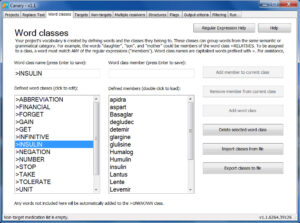 PRESENTERS
PRESENTERS
Alexander Turchin, MD, MS
Contact
Alexander Turchin
aturchin@bwh.harvard.edu
WEBSITE
Canary is a free / open-source platform for development of natural language processing (NLP) tools. It is a GUI-based software that is oriented towards researchers, clinicians and analysts without computer science background to empower them to create their own NLP tools. Canary supports many advanced NLP features, such as extraction of concept-value pairs (e.g. left ventricular ejection fraction) and identification of concepts distributed across multiple sentences; all RPDR file formats are supported. Canary has been downloaded by hundreds of users across the world and has been used in a number of research studies, including several at BWH and MGH.
CAMD Research Core
PRESENTERS
Michele Baltay, MS, Neal Lindeman, MD
Contact
Michele Baltay
mbaltay@bwh.harvard.edu
857-307-1500
WEBSITE
The BWH Metabolic core provides metabolic and behavioral testing using a Comprehensive Lab Animal Monitoring System (CLAMS). Our system collects continuous quantitative data of multiple metabolic and behavioral parameters, including O2 consumption, CO2 production, energy expenditure, core body temperature, feeding, sleeping, locomotion, and running wheel activity. Metabolic assessment can be performed under a variety of conditions, such as modification of ambient temperature (i.e. 35-40C) and light/dark cycle duration. Using our oxygen bomb calorimeter, we can assess the energy content of food and fecal material.
Cardiovascular Physiology Core
PRESENTERS
Sudeshna Fisch, PhD, Rick Bowman, MS, Alex Loscalzo, BS
Contact
Sudeshna Fisch
sfisch@bwh.harvard.edu
617-525-4862
WEBSITE
The Cardiovascular Physiology Core at BWH has a mobile and agile client-focused scientific team with strong expertise in delivering therapeutics and molecular target discovery, using a myriad of surgical and non-surgical approaches in preclinical model development (primarily rodents and fish). Its home to cutting-edge imaging tools, including Vevo3100 platform, that allows high throughput non-invasive phenotypic screening without using anesthesia. The Core has been in service for over 12 years, with over 300 publications attributed to direct work done on and off site, through a diverse array of academic, non-profit and corporate-based collaborations. We have the capacity to facilitate multi-pronged longitudinal animal-based research and development work, carry out animal surgery, animal monitoring, in vivo/ ex vivo work & in vitro cell-based assay development. We are fully engaged in basic and translational research studies that focus not just on cardiovascular disease, but also renal, hepatic, pulmonary, inflammatory, reproductive, developmental and endocrine disorders.
Clinical Pharmacology Core
PRESENTERS
Jeffrey G. Supko, PhD
Contact
Jeffrey G. Supko, Ph.D.
jsupko@mgh.harvard.edu
WEBSITE
The Clinical Pharmacology Core offers the expertise and laboratory capabilities required to undertake preclinical and clinical pharmacokinetic (PK) studies. Major services include the following: experimental design; procedures for sample collection, processing and storage; assay development and validation; routine analysis of study samples; metabolite identification; comprehensive PK data analysis; evaluate PK -PD (pharmacodynamic) relationships; develop drug formulations for preclinical studies; assistance with presentations and manuscripts.
ERIS Research Computing Core
PRESENTERS
Alissa Scharf, MPH
Contact
Alissa Scharf
ascharf@partners.org
WEBSITE
The Research Computing Core (RCC) is a cross functional team which utilizes resources across the Enterprise Research Infrastructure & Services (ERIS) group to provide consulting and technology services to researchers and their project teams, at competitive hourly rates. The Core collaborates with users on finding efficient solutions using technology for the unique needs of research environments.
Reach out to us to learn more about all of the services offered through the RCC, including discounted software licenses, web hosting, data storage, backup and other cost-effective consultation and technical services.
Genomics and Bioinformatics Hub
PRESENTERS
Tingting Zhao, PhD, Xianjun Dong, PhD
Contact
Xianjun Dong
xdong@rics.bwh.harvard.edu
857-307-5423
WEBSITE
The Genomics and Bioinformatics Hub aims to develop and explore computational and quantitative approaches and tools to help the biomedical research community maximize their understanding of the growing volume and complexity of biomedical big data. The program will provide collaboration opportunities and bioinformatics services for research scientists in BWH, with a focus on brain diseases and fundamental neuroscience research. The program will also create and maintain bioinformatics tools and resources, provide bioinformatics trainings to the community.
Gnotobiotic Mouse Cox 7 Core/MGH
PRESENTERS
Dai Fukumura, MD, PhD, Peigen Huang, MD, MSc.
Contact
Elizabeth J. Garzon
EGARZON@mgh.harvard.edu
617-726-8143
WEBSITE
This core has been breeding and maintaining defined flora mice in the Cox-7 gnotobiotic animal facility operated by the Edwin L. Steele Laboratory, Department of Radiation Oncology as a specialized facility of the Center for Comparative Medicine and Services at the MGH. This is a unique animal facility in the Harvard/MGH system and fully AAALAC-accredited. It generates about 30 different strains of high quality mice (defined flora condition). Among which immunodeficient mice such as Nude and SCID mice are widely available (in large quantity) through this Core. More heavily immunodeficient NOD-SCID and NSG mice are also available with special arrangement.
Harvard Catalyst Biostatistical Consulting Program and the Center for Clinical Investigation at BWH
PRESENTERS
Rie Maurer, MA
Contact
Rie Maurer
rmaurer@bwh.harvard.edu
617-525-7014
WEBSITE
The Harvard Catalyst Biostatistical Consulting Program, funded by the National Institutes of Health, supports Harvard postdoctoral and faculty investigators undertaking clinical and translational research. Drawing on a team of highly skilled biostatisticians from the Harvard academic medical and hospital community, the program offers consultations and expertise on a range of relevant areas to researchers as they launch new clinical and translation projects. The program also promotes the development and mentoring of Harvard Catalyst biostatisticians, as well as biostatistical training for clinical investigators.
Statistical services focus on clinical and translational projects in the early stages of development. Typical consultations are between 1-3 hours, rarely exceed 10 hours, and include the following:
Grant submission/resubmission
IRB submission
Protocol review
Design for non-grant project/feasibility consultation
Analysis planning and advice
Assistance with response to a manuscript/journal reviewer
Walk-in Office Hours
Brigham & Women’s Hospital offers office hours where biostatisticians are available to help investigators on a walk-in basis.
Brigham & Women’s Hospital (BWH)
Harvard Catalyst Biostatistical Consulting Program and the Center for Clinical Investigation at BWH offer weekly consultations virtually during COVID 19 pandemic. No reservation is required, and it is free. Biostatisticians will answer your statistical questions, guide you to more in-depth support, and will be available for both short- and long-term collaborations.
Office Hours: Tuesdays, 1:00pm-2:00pm
Availability: Anyone with a Harvard Medical School affiliation.
Contact Rie Maurer to request Zoom link (rmaurer@bwh.harvard.edu, 617-525-7014)
Human Immunology Center Flow Core
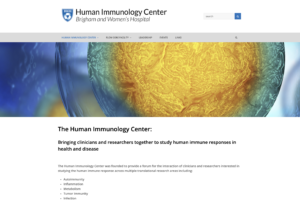 PRESENTERS
PRESENTERS
Adam Chicoine, BSc
Contact
Adam Chicoine
HICFLOWCORE@partners.org
WEBSITE
The Human Immunology Center’s Flow Cytometry Core Facility is a BWH core facility that serves both internal and external users, equipped with a 4-laser BD FACSAria™ Fusion cell sorter and a NEW 5-laser BD FACSAria™ Fusion cell sorter. Both sorters are built into HEPA filtered biosafety hoods for Biosafety Level II cell sorting.
Instruments:
4-Laser BD FACSAria Fusion Cell Sorter (16 fluorescent channels)
405nm – 85mW – “Violet laser”
488nm – 50mW – “Blue laser”
561nm – 50mW – “Yellow/Green laser”
640nm – 100mW – “Red laser”
5-Laser BD FACSAria Fusion Cell Sorter (18 fluorescent channels)
355nm – 15mW – “UV laser”
405nm – 85mW – “Violet laser”
488nm – 50mW – “Blue laser”
561nm – 50mW – “Yellow/Green laser”
640nm – 100mW – “Red laser”
NOTE: All sorting will be performed by Core personnel
Assisted cell sorting can be reserved and billed at hourly rates by using the Partners Core Management System.
LMA CytoF Antibody Resource Core
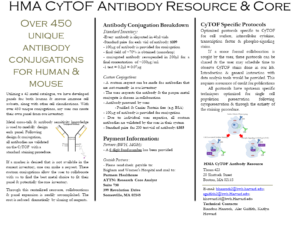 PRESENTERS
PRESENTERS
Kaitlyn Howard, BS Alec Griffith, BS Brandon Hancock, BS
Contact
Brandon Hancock
BHANCOCK2@BWH.HARVARD.EDU
WEBSITE
Utilizing a 42 metal catalogue, we have developed panels for both human & mouse immune cell subsets, along with other cell classifications. With over 450 unique conjugations, any user can create their own panel from our inventory. Metal cross-talk & antibody sensitivity knowledge is used to carefully design each panel. Following design & conjugation, all antibodies are validated on the CyTOF with a standard staining procedure. If a marker is desired that is not available in the current inventory, one can make a request. These custom conjugations allow the user to collaborate with us to find the best metal choice to fit their panel & potentially the core inventory. Through this centralized resource, collaborations & panel expansion is readily accomplished.
MGB Clinical Trials Office
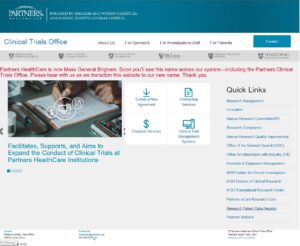 PRESENTERS
PRESENTERS
Suzanne Morin
Contact
Suzanne Morin
ctomailbox@partners.org
857-282-5787
WEBSITE
The Clinical Trials Office provides contracting, budgeting and CTMS services to our member-hospital investigators and their industry sponsors conducting Phase I-IV clinical trials. Under the auspices of the Office of the Chief Academic Officer at MGB, we offer tools and expertise in clinical trials set up and execution. The CTO manages broad array of agreements across the clinical trials spectrum, ranging from confidential disclosure agreements to multi-center coordinator contracts. Our team is ready to assist PIs with both industry -sponsored and investigator- initiated trials.
The growth of clinical trials research within the Massachusetts General Brigham (MGB) System has grown rapidly in recent years with investigators at MGH, BWH, McLean, Spaulding, Mass Eye and Ear, and Newton Wellesley participating. Since our inception in August, 2015 we have experienced a rapid growth rate in trial agreements. We are proud to have supported our colleagues during this expansion.
Our support to the MGB community includes the introductions of OnCore and Forte Payments, both state-of-the-art clinical trials management systems. We have dedicated teams for each of our three functional areas: Agreements, Finance and CTMS which allows for close collaborations between investigators, sponsors and the Clinical Trials Office.
By assisting our many internationally respected physicians and scientists in the MGB community engaged in trials of novel therapies, we have been privileged to help shape the next generation of clinical research.
MGH CCIB DNA Core
PRESENTERS
Amy Avery, MSc
Contact
Amy Avery
aavery@ccib.mgh.harvard.edu
617-726-0074
WEBSITE
@MGH_DNA_Core
Founded in 1995, the MGH CCIB DNA Core is a well-established major research core. The state-of-the-art facility provides a wide range of high-quality services and access to advanced instrumentation and expertise. Complete characterization of unknown plasmids is achieved through de novo assembly. Sequencing of CRISPR Amplicons, Viral Genomes and Complete Amplicons is made possible through specialized NGS-based methods. Additional offerings include Sanger Sequencing, DNA Fragment Analysis, Oligo Synthesis, Mouse Genotyping and Research Automation. The Core Team strives to advance research productivity by generating the highest quality data with rapid turnaround times and competitive pricing.
Mouse Behavior Core
PRESENTERS
Barbara Caldarone or Olga Alekseenko
Contact
Barbara Caldarone
Barbara_Caldarone@hms.harvard.edu
617-432-5267
The Mouse Behavior Core (MBC) provides a wide range of tests and equipment for mouse neurobehavioral phenotyping. The facility provides both full-service as well as training and guidance to investigators on best research practices, equipment, procedures and developing new tests. The MBC is outfitted with multiple rooms of equipment for behavioral testing in mice. Available assays include models of anxiety, depression, learning and memory, attention, social interaction, motor activity and coordination, and a 24h system that monitors locomotor activity, food intake and metabolic measures. The surgical suite is outfitted with two stereotaxic frames. Housing is available in an adjacent vivarium.
NeuroTechnology Studio
PRESENTERS
Lai Ding, PhD
Contact
Lai Ding
lding@bwh.harvard.edu
617-264-5946
WEBSITE
The NeuroTechnology Studio is a platform of advanced instrumentation and expert support for brain research at BWH and beyond. The Studio was launched in 2017 and is located in the BWH Hale Building for Transformative Medicine (HBTM). Studio’s major instrument includes:
Zeiss LSM880 confocal microscope with AiryScan FAST (super-resolution)
Zeiss LSM710 confocal microscope
Leica DMi8 widefield fluorescence microscope
Thorlabs Multiphoton Mesoscope
Agilent Seahorse XF Analyzer
Illumina NextSeq550 NGS
For full instrumentation list, please check our website.
NORCH/MGH Metabolic Imaging Core
PRESENTERS
Colleen Buckless, MS
Contact
Martin Torriani, M.D.
mtorriani@mgh.harvard.edu
WEBSITE
The NORCH/MGH Metabolic Imaging Core offers investigators a variety of state-of-the-art imaging technologies, many of which were pioneered by Core faculty, for human nutrition and obesity research. We provide unique opportunities for investigators to explore and improve the understanding of multifaceted metabolic processes by means of non-invasive techniques. Our services include individual consultation, training, imaging acquisition, and analysis. Taken together, the Metabolic Imaging Core leverages the combined expertise and instrumentation at established Harvard/MGH Cores to tackle complex investigations in obesity, metabolism, and nutrition-related neurobiology and behavior.
Patient-Reported Outcomes, Value, and Experience (PROVE) Center
PRESENTERS
Maria Edelen, PhD
Contact
Maria Edelen
PROVECenter@bwh.harvard.edu
617-732-6715
WEBSITE
The Patient-Reported Outcome, Value and Experience (PROVE) Center focuses on studying what matters most to patients, by understanding patient and cargiver preferences and values, to promote and operationalize high-value and patient-centered care at MassGeneral Brigham, and globally. Our mission is to expand the collection, analysis and utilization of patient-reported outcome measures (PROMs). We are a team of clinicians, psychometricians, and data scientists who collaborate with healthcare professionals, researchers, patients, and decision-makers to amplify the patient’s and caregiver’s voice in treatment planning, organization, and delivery, as well as reimbursement. The PROVE Center PROMs Research Launch Pad provides a consultant service to help clinicians and researchers seeking support for PROM-related research projects
Research Support Services
PRESENTERS
Francis Foley
Contact
Francis Foley
researchsupportservices@partners.org
857-282-1829
WEBSITE
At Research Support Services (RSS), we provide your department with experienced consultants to support and manage all aspects of the research grant lifecycle from proposal development to grant closeout. Whether your group needs help covering vacant positions or needs assistance during periods of high volume, RSS consultants are available to keep your research operations moving forward. Having worked with over 100 departments across MGB and other local institutions, RSS has the skills and experience to serve your needs.
Single Cell Genomics Core
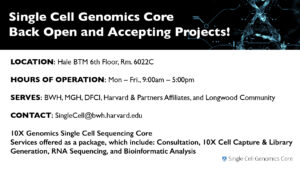 PRESENTERS
PRESENTERS
Kevin Wei, MD PhD
Contact
Adam Chicoine
atchicoine@bwh.harvard.edu
WEBSITE
The advent of droplet-based single cell transcriptomic analysis now offers the ability to assess single cells from patient samples or animal models in dramatic detail and has the potential to identify new pathologic cell subsets and phenotypes that may be targeted therapeutically. The Single Cell Genomics Core offers researchers an integrated pipeline to perform successful single cell transcriptomic analysis, including droplet-based single cell transcriptome library preparation, sequencing, and bioinformatic analysis through the core, along with technical expertise on tissue processing, sample preparation, and cell isolation.


